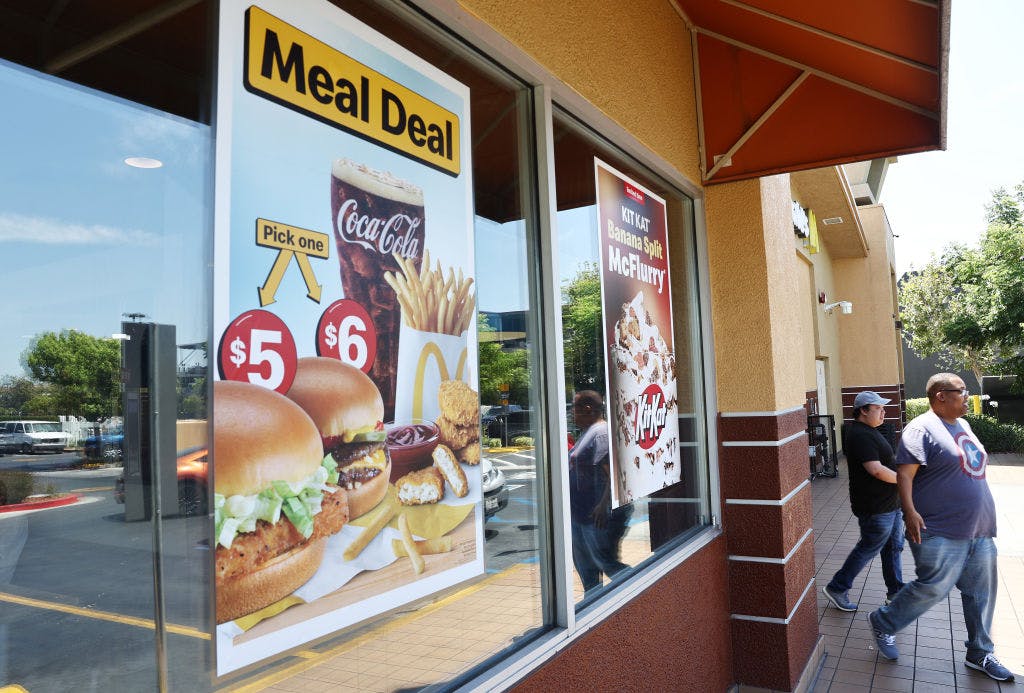McDonald's is in a tough spot. It thinks meal deals will save it.
The fast-food chain used the word “value” at least 94 times on their earnings call as its CEO stressed the need to serve cheap food.
McDonald's is losing its grip on the American consumer. The only way it sees itself getting them back is by going back to their roots: cheap food.
The fast food chain reported disappointing earnings on Monday, missing Wall Street expectations. By some key measures, it reported its worst quarter since the start of the pandemic.
McDonald’s, like most companies that sell food, saw their costs increase with inflation over the past few years. They have passed on to consumers while increasing their margins. Price hikes allowed them to grow profits even when less people ate at McDonalds, because the people who did spent more.
But now consumers are eating out less, and when they do eat out, they don't want to feel like they're getting ripped off. "These price increases disrupted long running value programs and led consumers to reconsider their buying habits," Christopher Kempczinsk, CEO of McDonald’s, told analysts Monday morning.
Kempczinsk noted that customers don't perceive McDonald's as a "value leader" like they used to. The word "value" was used at least 94 times in the call.
"We are working to fix that with pace," he said.
The company rolled out a $5 meal deal this summer, which it reported has gotten great traction. Other chains, such as Taco Bell and Wendy's, have followed suit.
McDonald’s quarterly revenue was flat from last year, and same-store sales in the US declined by 0.7%, marking the first time that measure has declined since the beginning of pandemic-era lockdowns.
Wall Street seems either inspired by McDonald's push toward value, or unphased by the dip in sales growth, and its stock was up about 3.5% Monday morning.
